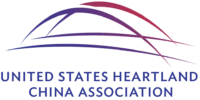Contact: Min Fan, USHCA Executive Director contact@usheartlandchina.org
FOR IMMEDIATE RELEASE:
PLANTING PEACE: U.S. Heartland China Association Promotes World’s Largest Agricultural Trade Relationship in 2nd Annual U.S.-China Ag. Roundtable
April 10, 2022 - Jefferson City, MO
Former Missouri Governor Bob Holden: “We will reap what we sow this season, and this is a season for planting peace.”
CPIFA President Ambassador Lin Songtian: “China is the leading agricultural importer and the U.S. is the number one and most advanced exporter; China represents a huge opportunity for American farmers.”
USDA Deputy Undersecretary Jason Hafemeister: “The global and environmental challenges we face will only be decisively addressed if the U.S. and China come together on identifying institutional approaches to allow farmers to improve production practices. This ‘sustainable intensification’ is crucial to reducing greenhouse gas emissions…and rationalizing the contribution that agriculture makes to climate change.”
Ambassador Qin Gang: “Each American farmer exported, on average, $11,000 of products to China in 2021. This best represents the win-win nature of U.S.-China cooperation.”
Charge d’Affaires David Meale: “Our two nations share a lot of common goals when it comes to agriculture. I encourage everyone with a stake in agriculture to work constructively to help keep it as a bright spot in the [U.S.-China] relationship and to work together to address the challenges ahead.”
Amidst the war in Ukraine and rising concerns about record-breaking food prices and fears about global food insecurity, the U.S.-China Heartland Association and the Chinese People’s Association for Friendship with Foreign Countries convened the second annual Agricultural Roundtable to promote the continued expansion of food trade and agricultural cooperation between the world’s two largest economies, feeding almost one-quarter of the world population. Convening U.S. and Chinese officials, agribusiness, and experts in four separate sessions, the two sides agreed on the necessity of U.S.-China agriculture cooperation for the future health of people and the planet, and pledged to increase cooperation to meet these challenges. The two sides agreed to plan follow-on high-level dialogues to continue the momentum of collaboration.
China is the largest food importer in the world and the number one U.S. export market for agricultural products. U.S. farmers saw record-breaking exports to China in 2021. As U.S. Secretary of Agriculture Tom Vilsack said in a recent press statement, the ag sector’s outstanding 2021 export performance “is a major boost for the economy as a whole, and particularly for our rural communities, with agricultural exports stimulating local economic activity, helping maintain our competitive edge globally, supporting producers’ bottom lines, and supporting more than 1.3 million jobs on the farm and in related industries such as food processing and transportation.”
USHCA Chairman and Former Missouri Governor Bob Holden opened the roundtable and exhorted the U.S. and China to work to “plant peace,” and tackle the major challenges of food security, peace and sustainability: “The U.S. and China share a common goal to guide the world towards a better and more productive future. For our planet to survive, we must have open dialogue, common purpose, and wise leadership from all in the years ahead. USHCA believes we must work together to deal with the three most critical challenges of sustainable food security, climate change, and preventing future pandemics of human, animal and plant diseases. It is essential to have peace, especially between the U.S. and China. Peace through agriculture is our mission. We will reap what we sow this season, and this is a season for planting peace.”
Chinese speakers, including two ambassadors and numerous agricultural experts, highlighted the complementarity of U.S. and Chinese economies in agriculture and pointed to long-term challenges and opportunities requiring U.S. – China cooperation. Roundtable speakers acknowledged the strains in recent bilateral relations, but pointed to the important video meeting between President Biden and President Xi in March and were adamant that these tensions should not be allowed to derail crucially important cooperation in the agricultural field.
U.S. speakers noted that bilateral agricultural trade, which was damaged by the onset of a trade war in 2019, has more than recovered its earlier losses. They cautioned, however, that redoubled efforts would be needed to overcome long standing irritants and roadblocks to improved efficiency and cooperation, such as non-scientific barriers to trade and other market barriers. USDA Deputy Undersecretary Hafemeister noted the potential and importance of bilateral cooperation to spur innovation and investment in climate-friendly agricultural practices and create markets for sustainable food around the world. U.S. speakers stressed the need for ongoing reforms to ensure that the rules-based system for agricultural trade enables the most efficient and sustainable production and open markets to allow American farmers to continue to feed the world.
Trade and cooperation with China in agriculture will continue to be essential to the future of America’s Heartland, and the U.S.-China Heartland Association remains determined to see that agricultural cooperation remains a bright spot in the U.S.-China relationship for the sake of farmers and healthy, sustainable food for both sides of the Pacific and the world. We look forward to continuing to work with Chinese partners to make this vision a reality.
Ag. SME Showcase Replay Link
Ag. Education Dialogue Replay Link
Ag. Think Tank Dialogue Replay Link
The US Heartland China Association is a 501(C)3 bipartisan organization that is dedicated to building healthy ties between the heartland region of the United States and the People’s Republic of China. USHCA builds those ties through promoting exchanges in culture, education and business. More information is available at USHeartlandChina.org.

